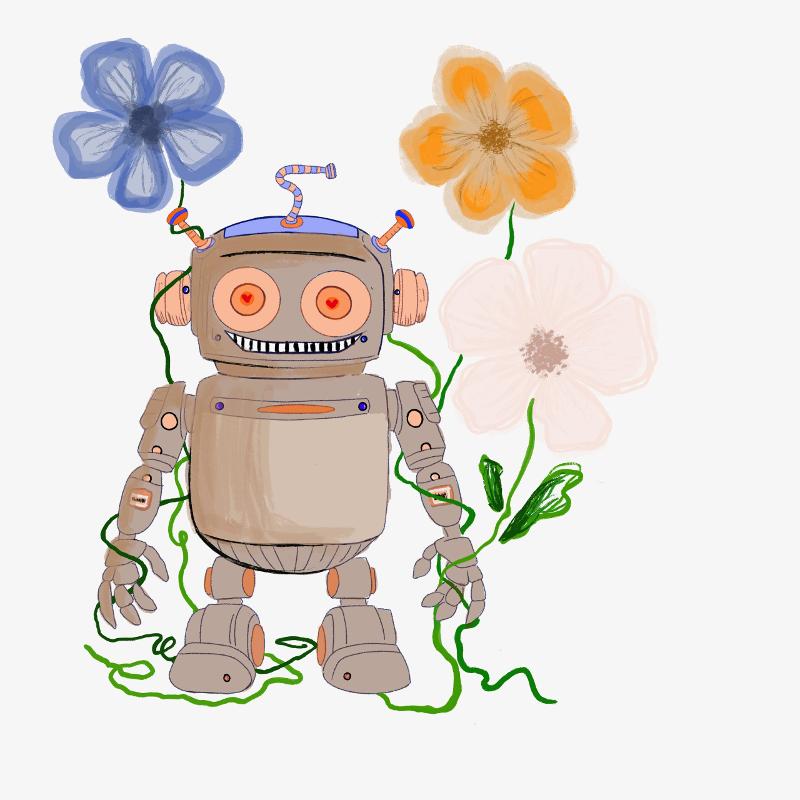Artificial intelligence (AI) is not just a buzzword; it's a game-changer in various industries, including environmental science. With the increasing threats of environmental stressors, AI is emerging as a powerful tool in detecting, mapping, and mitigating these effects. In this article, we'll explore how AI is revolutionizing environmental science and its potential to address climate change challenges. Let's dive in!
AI in Environmental Monitoring
Discover how AI is transforming environmental monitoring and providing real-time insights.
Environmental monitoring plays a crucial role in understanding the health of our planet. With the power of AI, we can now gather more accurate and real-time data to detect and address environmental issues. AI models can automate the process of analyzing samples and recognizing the presence of specific toxins in air, water, and soil. This enables us to monitor the status of delicate ecosystems, such as coral reefs and wetlands, and take timely action to protect them.
Moreover, AI can create analytical maps based on historical and statistical data, helping us understand trends and trajectories of toxin levels, weather patterns, and human activities. By evaluating satellite imagery, AI can identify areas where specific conditions may be present and recognize patterns or changes. This is invaluable in forecasting dangerous weather events, enhancing agricultural productivity, and responding to disease outbreaks. AI is revolutionizing environmental monitoring and empowering us to safeguard our planet.
AI for Mitigating Environmental Toxins
Explore how AI is optimizing mitigation strategies and addressing the sources of environmental toxins.
Mitigating environmental toxins requires identifying their sources and pathways, as well as optimizing intervention strategies. AI is proving to be a valuable tool in this process. By analyzing vast amounts of data, AI models can identify the origins of toxins and their potential pathways, enabling us to take targeted action.
Furthermore, AI can optimize mitigation strategies by evaluating the effectiveness of different approaches and monitoring the success of ongoing efforts. This allows us to make data-driven decisions and continuously improve our mitigation practices. With AI's assistance, we can better understand the complex dynamics of environmental toxins and work towards a cleaner and healthier future.
AI's Role in Climate Change Prediction
Learn how AI is helping us predict and mitigate the impacts of climate change.
Climate change is one of the most pressing challenges of our time, and AI is playing a crucial role in predicting and mitigating its impacts. AI models can analyze historical data, weather patterns, and other relevant factors to create predictive models. These models help us anticipate the occurrence of extreme weather events, identify vulnerable areas, and develop strategies to minimize their impact.
Additionally, AI can assist in optimizing agricultural practices to enhance productivity and combat food insecurity caused by climate change. By analyzing data on soil conditions, weather patterns, and crop performance, AI can provide valuable insights for sustainable farming practices. AI's predictive capabilities are instrumental in addressing climate change and building a resilient future.
The Importance of AI Governance
Understand the need for AI governance and responsible use of this powerful technology.
While AI offers immense potential for positive change, it also raises concerns about ethics, privacy, and inequality. That's why AI governance is crucial. Governments, corporations, and the wider community must work together to establish guidelines and regulations for the responsible use of AI.
By ensuring transparency, accountability, and inclusivity, we can harness the power of AI for the greater good. AI governance should prioritize the protection of privacy, the prevention of bias, and the equitable distribution of AI benefits. With the right governance framework in place, we can navigate the challenges and maximize the potential of AI in creating a sustainable and equitable future.
Conclusion
Artificial intelligence is revolutionizing environmental science and providing us with powerful tools to address climate change and environmental challenges. Through AI, we can monitor and analyze environmental data in real-time, optimize mitigation strategies, predict the impacts of climate change, and ensure responsible and equitable use of this technology.
By harnessing the power of AI and promoting AI governance, we can work towards a sustainable future, safeguard our planet, and improve the lives of people around the world. It is crucial that we continue to explore the potential of AI and collaborate across sectors to maximize its positive impact on the environment and society.
FQA :
How is AI transforming environmental monitoring?
AI is transforming environmental monitoring by automating the analysis of samples, detecting specific toxins, and providing real-time insights. It helps us monitor delicate ecosystems, forecast dangerous weather events, and respond to disease outbreaks.
What role does AI play in mitigating environmental toxins?
AI plays a crucial role in mitigating environmental toxins by identifying their sources and pathways, optimizing intervention strategies, and monitoring the success of mitigation efforts. It enables data-driven decision-making and continuous improvement in our practices.
How does AI contribute to climate change prediction?
AI contributes to climate change prediction by analyzing historical data, weather patterns, and relevant factors to create predictive models. It helps us anticipate extreme weather events, identify vulnerable areas, and optimize agricultural practices for resilience.
Why is AI governance important?
AI governance is important to ensure the responsible and ethical use of AI. It prioritizes transparency, accountability, privacy protection, and the equitable distribution of AI benefits. With the right governance framework, we can harness the power of AI for a sustainable and equitable future.

